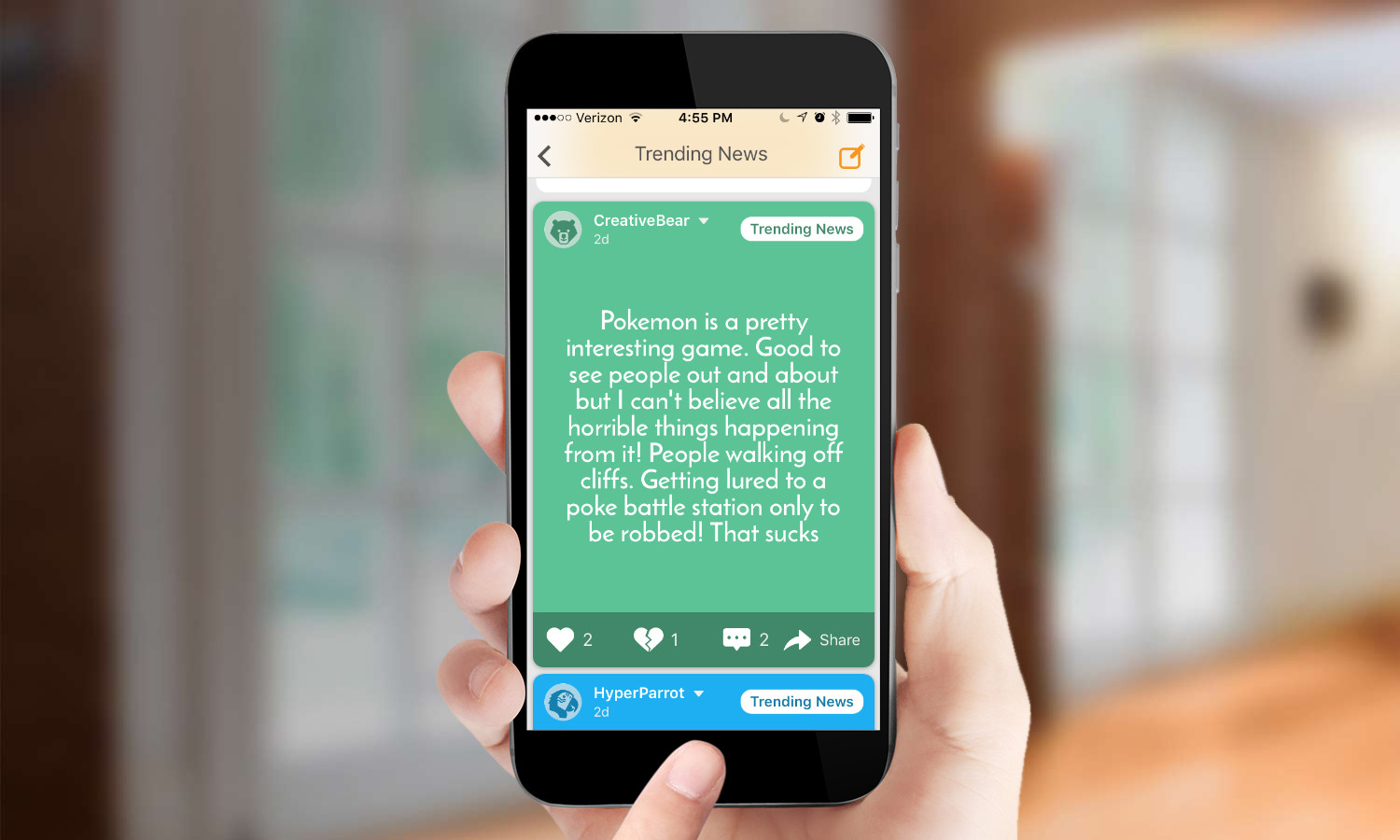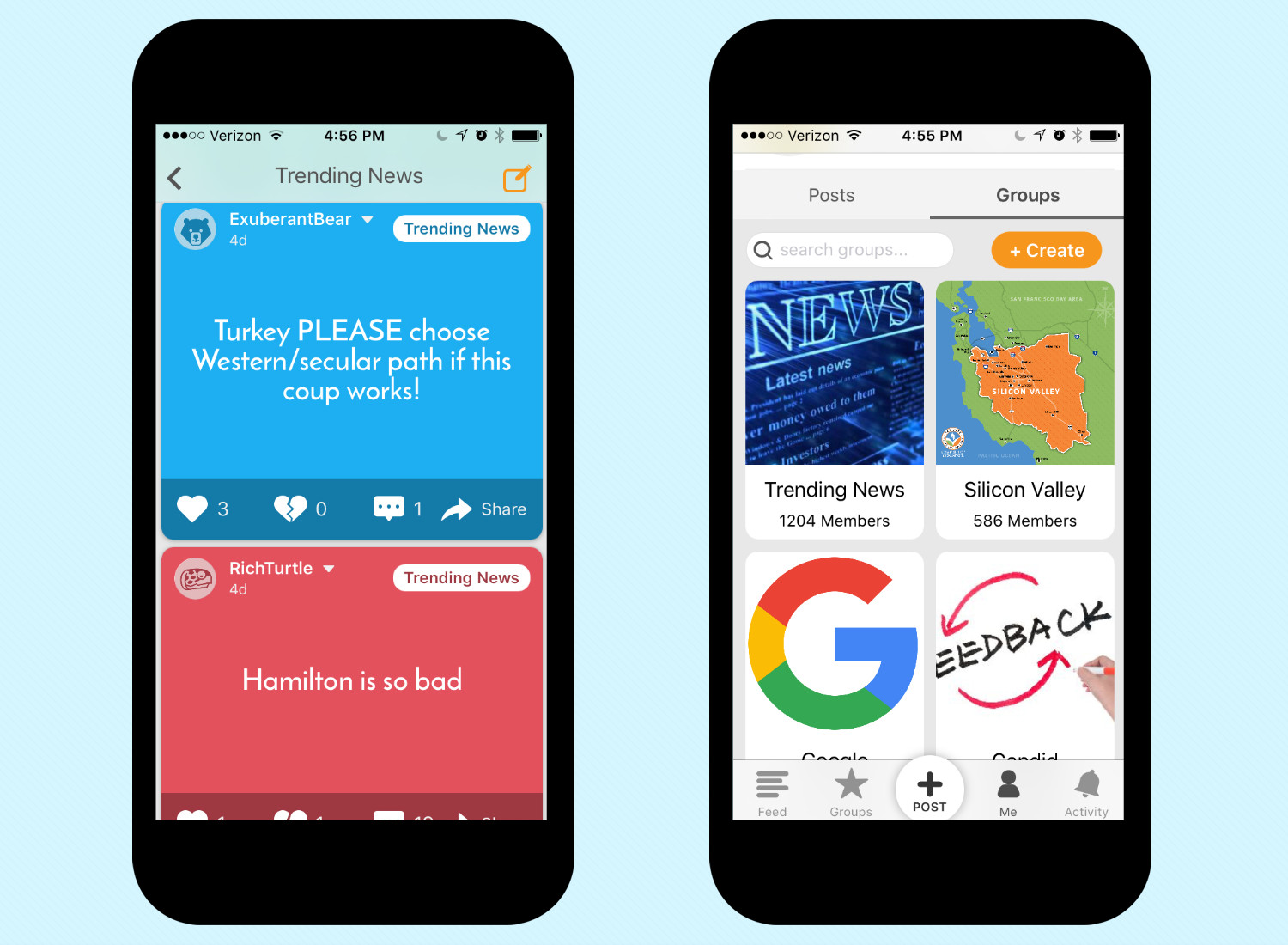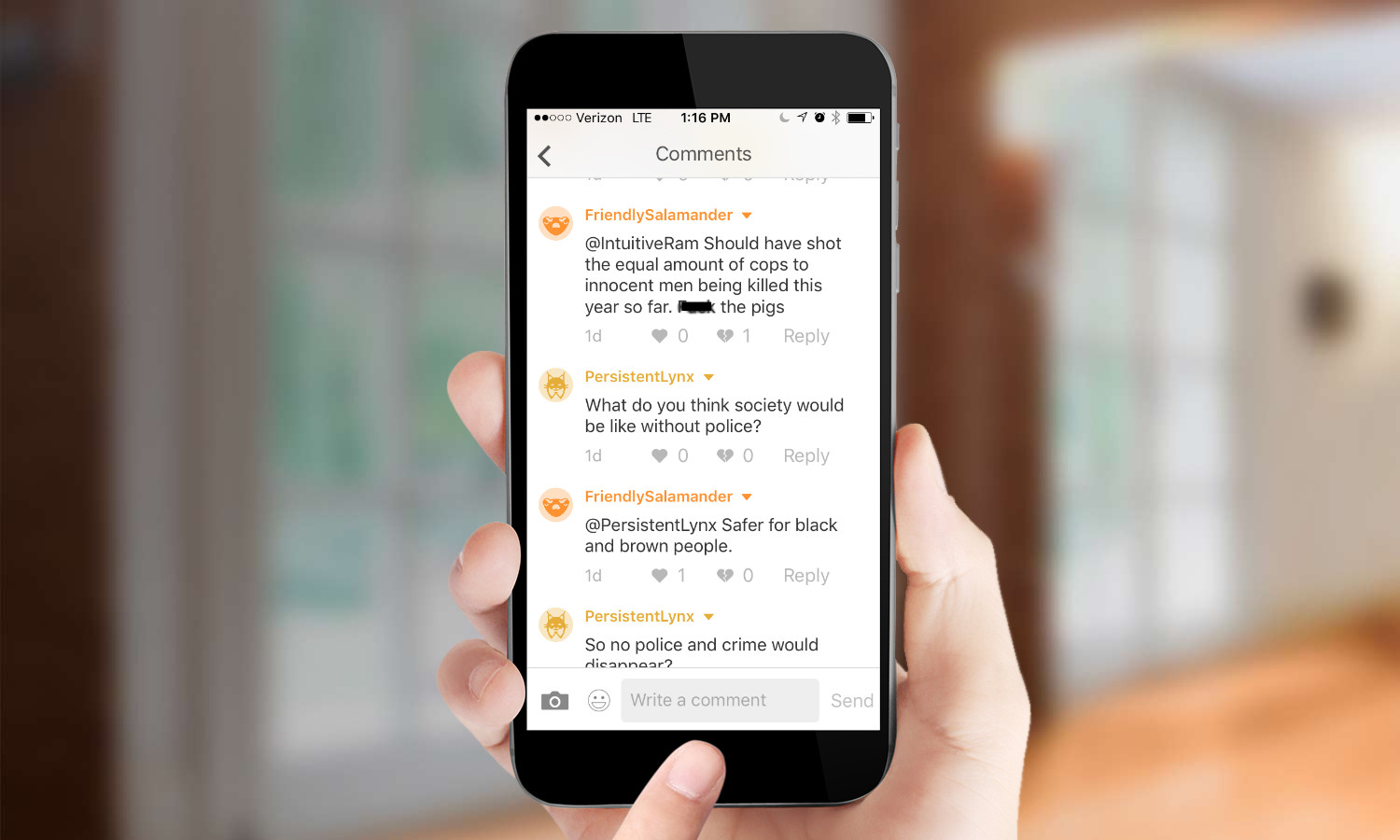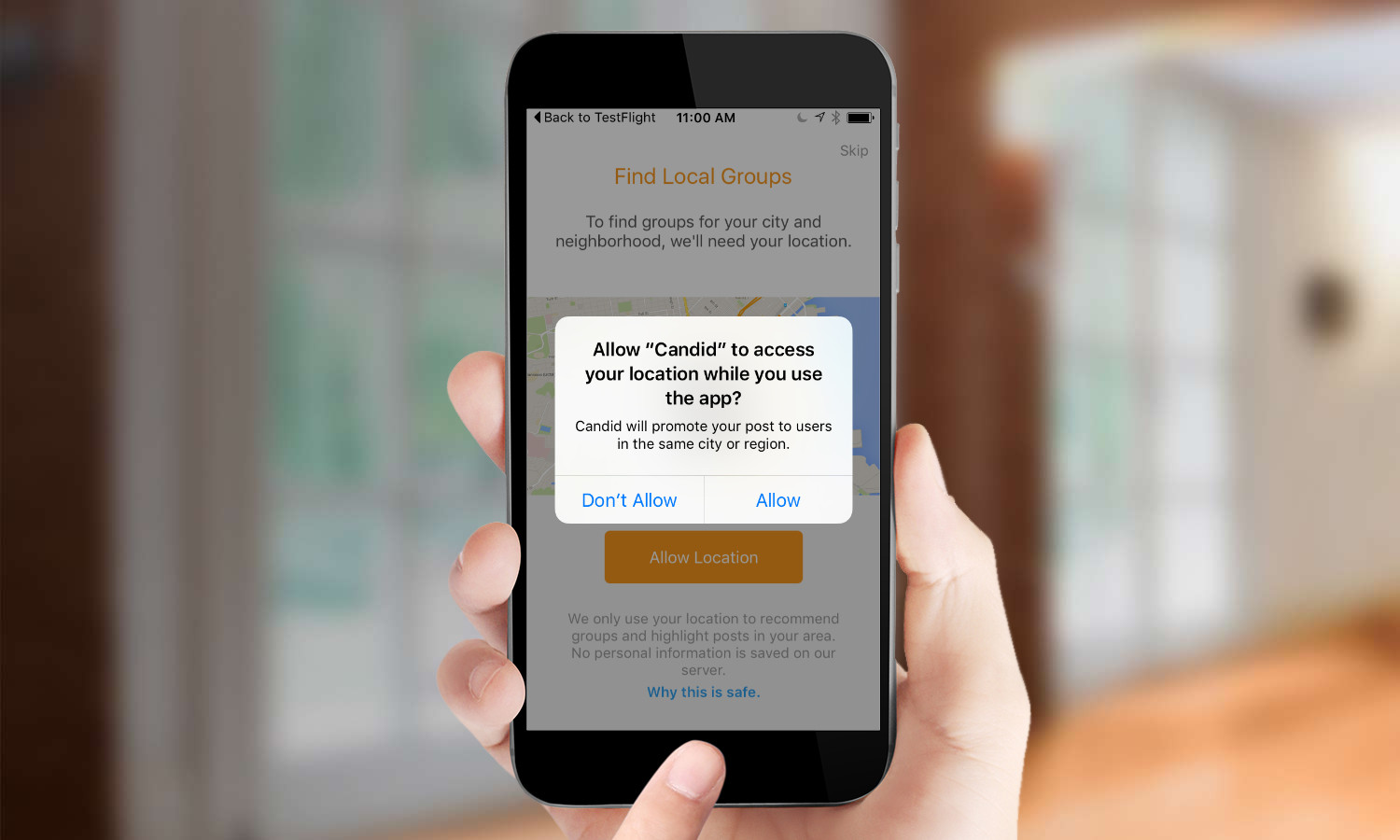Anonymous Social App Lets You Unleash Your Inner Troll
The new social-media app Candid lets people post anonymously, but it still has work to do to avoid the kind of offensive posts you'd find on other social networks.
A new smartphone app promises to give you the freedom to express your true, unfettered opinions about the news of the day, or share juicy gossip without fear of reprisal. The downside? Other people get to do the same thing.

That was my experience after using a pre-release version of Candid, a free social-networking app launching today (July 21) for Android and iOS devices. The app lets you post anonymously, sparing you awkward interactions with relatives on Facebook or the professional repercussions of expressing an unpopular opinion on Twitter. It even goes so far as to assign you a new avatar for every post you make and every thread you comment on.
MORE: 10 Best Social Apps
Bindu Reddy, an ex-Google project lead, said that was her primary motivation for creating the app with her co-founder Arvind Sundararajan.
"You have to be careful about everything you post," Reddy recounted of her experience posting to Facebook and Twitter.
She became frustrated by having to sweat over social media posts, fearing that even the most innocuous tweet — let alone one about something controversial — would trigger a backlash.
"It took the fun out of it for me," she said. "I used to be able to express myself."
Expressing yourself won't be a problem at Candid. Rather than amassing followers, the Candid service centers topics and communities. You select the topics you want to follow. Candid offers a wide variety, from trending news to lifestyle categories like bicycling, food and sports.
The app also uses Facebook data you anonymously supply it with — more on that a little later — to recommend groups based on the personal data you've posted on that social-networking site.
Sign up to get the BEST of Tom's Guide direct to your inbox.
Get instant access to breaking news, the hottest reviews, great deals and helpful tips.

You're randomly assigned an identity whenever you post something to Candid, though that identity changes based on whatever thread you're in. I might be posting as HealthyOctopus in one thread while responding as HyperLemur in another. No one will ever know it's me, theoretically giving me the freedom to say how I truly feel about a topic.
But as Peter Parker's Uncle Ben once observed, with great power comes great responsibility, and it's clear after a week or so of poking around Candid that not every user is ready to use that freedom responsibly.
Launching an anonymous commenting app at a time of heightened racial tensions and a divisive U.S. presidential election was always going to be a fraught proposition. And it's safe to say that some members of the Candid beta testing community are using the cloak of anonymity to act like jerks.

The folks behind Candid say that artificial intelligence will keep the app from becoming the latest online home for our worst impulses. Specifically, Candid says it uses natural-language-processing technology to analyze posts so that it can identify hate speech, slander and threats, and remove any posts that cross a line.
Based on my experience, that natural-language-processing technology needs some fine-tuning. A Candid post referring to African-American protestors as "disgusting animals" who "riot over people they don't know" remained on the mobile app, as did another post suggesting that the shooter at an otherwise peaceful Dallas protest "should have shot the equal amount of cops to innocent men being killed this year so far." A third post included Twitter links depicting fairly graphic photos of a victim of the Bastille Day terrorist attack in Nice, France.
Candid executives conceded that these posts were inappropriate when I raised my concerns to a company representative, and the posts were subsequently removed. The company says it's now training the system to flag anything about race as it teaches the AI to be able to detect nuance in posts. I don't doubt the company's sincerity in these efforts, but I wonder how many Candid users will be willing to stick around if the AI initially proves to be more miss than hit.
Besides, even contentious posts that don't devolve into offensive language and veiled slurs offer little enlightenment. The assorted Trump-vs.-Clinton posts currently dotting Candid are every bit as maddening as they are on Facebook or Twitter. The only difference is that the names of the people you're arguing with have been stripped out.
In my few attempts to participate in discussions, I felt like the other person and I were talking past each other. The lack of real names created no potential loss of social capital, removing any incentive for either of us to concede that maybe the other person had a valid point.

I mentioned earlier that Candid bases its recommended groups on personal details you've posted to Facebook, which seems odd for an app that prizes anonymity. Indeed, when you set up your Candid account, the app asks you not only to sign in through Facebook, but also for permission to access your contacts and learn your location. Candid's developers say that information is used only to personalize your news feed and see if anyone you know is also posting to the app.
The posts of your Facebook friends and contacts are promoted, though you're never told who explicitly is saying what. Nor are their names ever revealed to you. Still, if you knew a lot of your Facebook friends and contacts were also using Candid, I would think that might cause some hesitation about what you post, seemingly contradicting Candid's stated mission.
As for security, Candid says it doesn't collect IP addresses and that it encrypts data using a cryptographically secure one-way hashtag algorithm. That means even Candid employees won't be able to put a name to an account, though the app claims it can kick out people who abuse the service.
In fairness to Candid, there's a value to being able to post anonymously online, apart from the allure of acting like a jerk without consequences. Candid's setup should prevent the kind of targeted abuse that continues to dog services like Twitter. And women, who can rarely tweet an opinion without receiving a flurry of responses informing them that they're wrong, should be able to post on Candid without receiving a never-ending stream of "Actually..." replies.
But at launch, Candid still has a lot of growing up to do, as it figures out how to strengthen its algorithm so that the app isn't overrun by the kind of anonymity-fueled abusers I encountered. Even then, Candid will still have to find a way to be more than just an app where people can shout into the void.
Philip Michaels is a Managing Editor at Tom's Guide. He's been covering personal technology since 1999 and was in the building when Steve Jobs showed off the iPhone for the first time. He's been evaluating smartphones since that first iPhone debuted in 2007, and he's been following phone carriers and smartphone plans since 2015. He has strong opinions about Apple, the Oakland Athletics, old movies and proper butchery techniques. Follow him at @PhilipMichaels.

